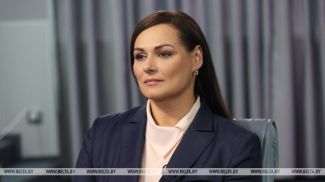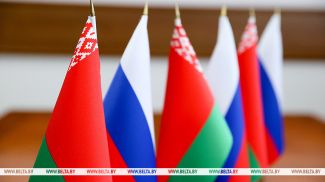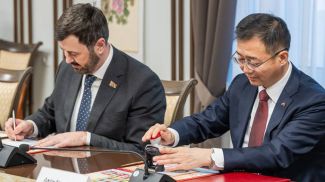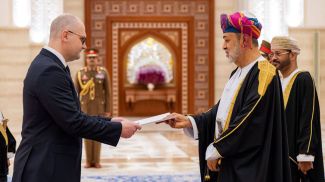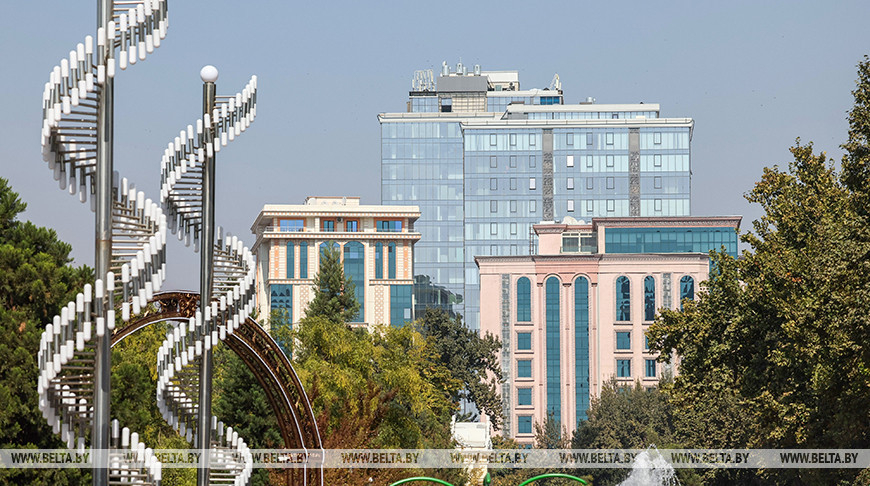
In October, the capital of Tajikistan is hosting the CIS summit. The CIS leaders are set to consider around twenty items, but one of them deserves special attention. The CIS Heads of State Council is expected to establish a CIS Plus format, which would involve the participation of third countries in the work of the association. This partnership format has already proven effective within the SCO and BRICS, and the CIS now seems poised to follow their lead. Will this allow the organization to expand its influence in the region and enhance its standing on the international stage? Let's take a closer look.
What future does the CIS have on the world stage?
The Commonwealth of Independent States (CIS) is the largest and, perhaps, the most well-known integration association in the post-Soviet space. It was originally created to regulate relations between the republics of the former USSR. Not all of them joined this organization. Some later withdrew or suspended their membership. But most countries had the wisdom to preserve this unity. And now, the focus is shifting from cooperation as a “closed club” to expanding its sphere of influence. The CIS has the right, and perhaps even the duty, to become an authoritative player on the international stage.
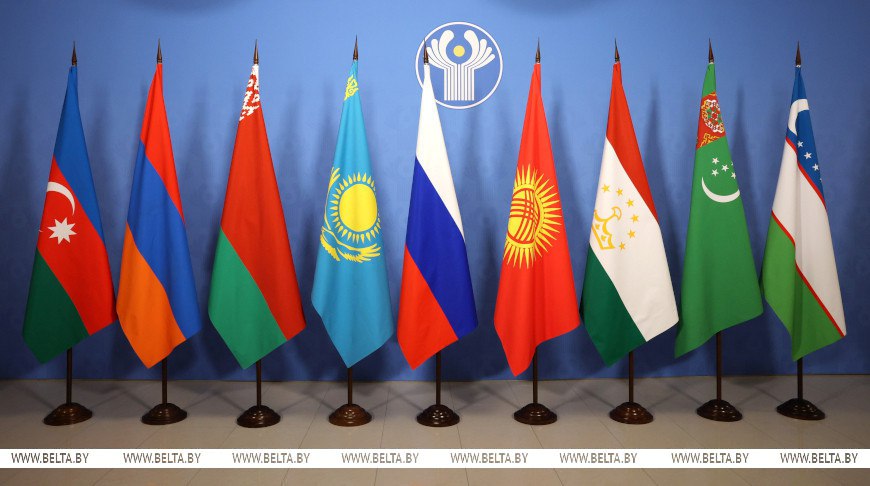
These issues have been discussed for several years now. For instance, a couple of years ago at the summit in Bishkek, Belarusian President Aleksandr Lukashenko stressed that representatives of various international organizations already participate in many meetings of the CIS's bodies, which means it's time to move further.
“Belarus has always been in favor of aligning the activities of international integration associations with shared goals and objectives. The fundamental condition is that we must support each other, not create obstacles. I believe that the CIS member states might be interested in the existing developments from our other formats, for example, on such important topics as e-commerce, the widespread introduction of digital technologies, access to government procurement, the reduction of mobile roaming tariffs, and many other areas,” the Belarusian leader said.
Back then, at the Bishkek summit, the heads of state decided to establish the status of a CIS observer and a CIS partner. This created the foundation for the legal regulation of such relations. Work in this direction has already yielded its first results. It is expected that at the Dushanbe summit, the Shanghai Cooperation Organization will be granted observer status with the CIS. The SCO members officially announced their decision to work with the CIS on 1 September in Tianjin, China.
What does the CIS Plus format mean?
The CIS Plus format was initiated by President Kassym-Jomart Tokayev of Kazakhstan just a year ago at the CIS summit in Moscow. According to him, this platform will become a basis for expanding regional ties.
“The prestige of the CIS on the world stage is growing. Last year, the statuses of CIS observer and partner were established, which demonstrated the openness and maturity of our organization. To continue this institutional work, I propose considering the establishment of a CIS Plus format,” the Kazakh leader said.
This initiative was also supported by Belarus. “Belarus welcomes the initiative of our Kazakh colleagues to create a CIS Plus format as a new platform for multilateral cooperation between the CIS member states and international partners,” Aleksandr Lukashenko said at a recent meeting with the heads of the CIS government delegations.
Let's take the CIS and the SCO, for example. These organizations have many points of convergence, including in the humanitarian sector. Furthermore, both associations prioritize the fight against terrorism, drug trafficking, and illegal migration. We should not forget the economic aspects either: projects under the CIS could find continuation beyond the CIS. So, it is quite obvious that many Asian countries would derive certain benefits from joining the CIS Plus platform.
What else will be discussed at the CIS summit in Dushanbe?
Several documents submitted for consideration by the CIS Heads of State Council address the issue of cooperation in security. At the Dushanbe summit, it is planned to approve cooperation programs for combating terrorism and extremism for 2026-2028, as well as for strengthening border security on the external borders for 2026-2030, and a concept for military cooperation until 2030.
The heads of state are expected to sign a declaration on cooperation in ensuring regional energy security. This declaration is aimed at combining efforts for the systemic development of the energy sector, which serves as the foundation for the sustainable functioning of the economy, social stability, and national security in the face of global challenges and a rapidly changing world situation.
The CIS leaders also intend to adopt a number of statements, including on cooperation in combating transnational crime; on combating money laundering, the financing of terrorism, and the financing of the proliferation of weapons of mass destruction; on the occasion of the 40th anniversary of the Chernobyl nuclear power plant accident; and on the occasion of the 80th anniversary of the United Nations.
Why is the CIS developing cooperation with the UN?
In August, the General Assembly adopted a resolution on cooperation between the UN and the CIS. The document acknowledges the activities of the CIS in strengthening regional cooperation in areas such as trade and economic development, the exchange of statistical data and economic information, culture, education, healthcare, sports, tourism, science and innovation, environmental protection, combating natural and man-made disasters, countering organized crime and the illicit trafficking of narcotic drugs, psychotropic substances and their precursors, acts of terrorism, manifestations of extremism, and illegal migration, among other related fields.
The resolution emphasizes that strengthening cooperation between the UN and the CIS will contribute to advancing the goals and principles of the UN. In other words, the CIS remains a reliable partner for the UN in ensuring international peace and security, sustainable social and economic development, and the realization of human rights.
Economy remains the main task for the CIS
Why is the economy still named the main task for the CIS when we talk about international authority and influence on the world stage? It's simple: the economy is the foundation of everything. Only on this foundation can genuine leadership be built.
At the meeting of CIS heads of government we mentioned earlier, Aleksandr Lukashenko emphasized that in the context of the current global redivision and intense competitive struggle, one can only withstand it together.
“I will say it simply, in plain terms: let's not lose what previous generations of our people have built up. Let's preserve what we have - our economic relations, our economic foundation. Let's stick together now. Let's not run off in different directions,” the Belarusian leader urged. “No one is waiting for us anywhere. The main thing is our unity, to preserve what previous generations have built, what we have.”
Aleksandr Lukashenko is convinced that the central role in these processes belongs to Russia. “It must make the main contribution to glue together, to unite, to prevent our unions from falling apart during this time. It must play its role in this regard. And we must not just demonstrate, but move in this direction,” the president of Belarus said. “The main thing is the economy. Let's maintain this economy at the highest level. Let's first and foremost see our countries in the implementation of various programs, contracts, and development directions of a particular state, and support each other as much as we can. The basis must be fairness, sincerity, and the equality of our relations.”
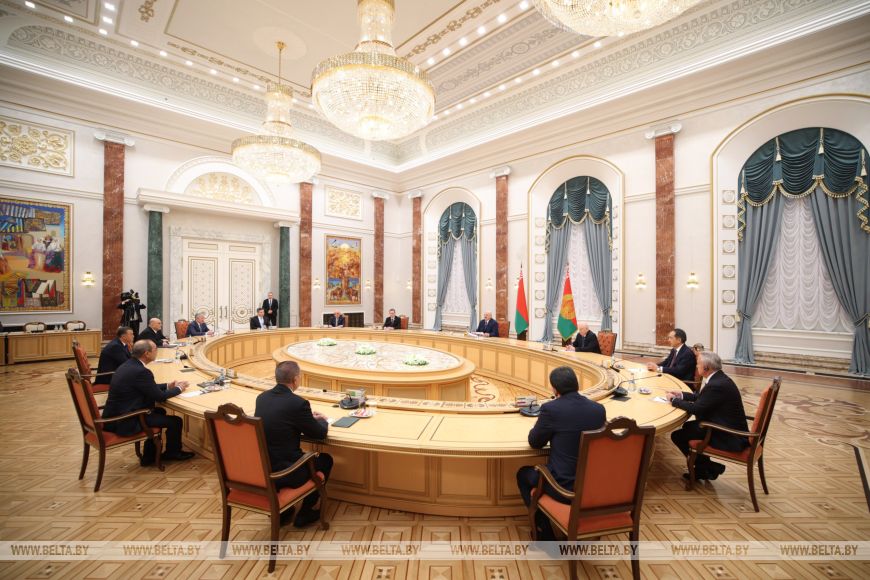
For the second year in a row, the GDP growth rates in the CIS member states have exceeded the global average. According to Belarusian Prime Minister Aleksandr Turchin, this trend clearly confirms that each country receives concrete benefits from economic integration within the CIS. However, the Belarusian head of government is convinced that one cannot rest on their laurels and ignore the turbulence in the global market.
Lately, there has been much talk about the Global Majority. Countries that identify with this definition strive for cooperation based on the principles of equality and mutual respect, without diktats and threats, illegal restrictions, or coercion. The Shanghai Cooperation Organization, and China itself, have become one of the leaders of these processes. The CIS can also be a significant participant in geopolitical transformations.
According to the president of Belarus, the CIS must establish itself as an authoritative, influential organization that genuinely contributes to the strengthening of equal relations in the political and humanitarian sectors. Belarus, for its part, will continue to actively promote the strengthening of partnership between countries and the development of integration in all its forms.




